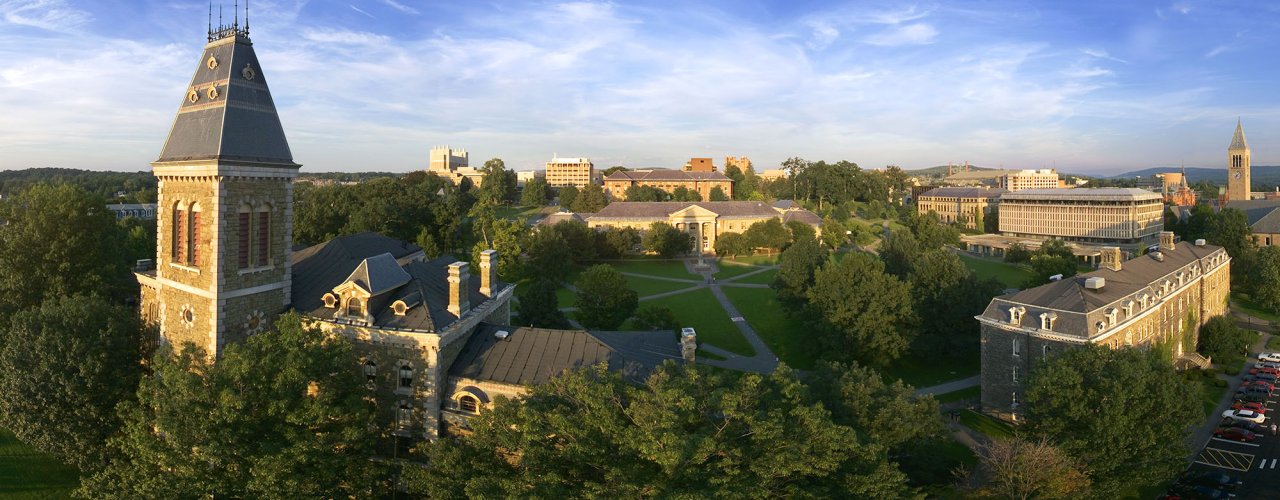Molecular Diagnostics: Ithaca and Santiago
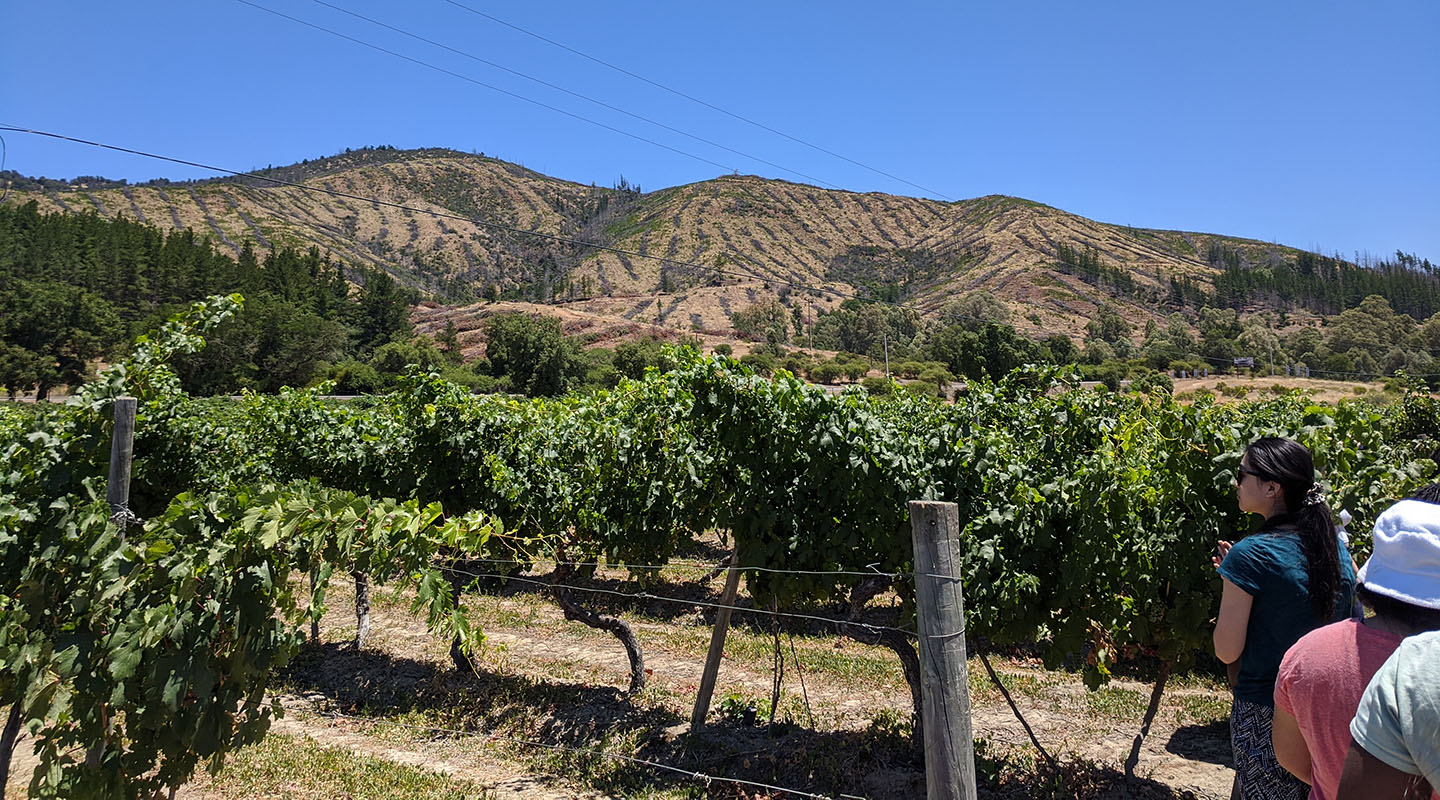
Class Integrates Science, Language, and Culture
"It was an incredible, life-changing experience that has not only transformed me as a researcher but has revolutionized the way I think about the world itself. Immersing myself in another society was humbling and allowed me truly to appreciate the cultural and linguistic beauty of Chile," says Gabriele Orie '21. Orie was one of the 14 participants in the 2019–20 Molecular Diagnostics: from Lab to Viñedo class.
Now in its third year, the class continues to offer undergraduate and graduate students the opportunity to combine hands-on laboratory training and theory with an overseas experience that integrates language and cultural components.
I think the most significant thing I learned from this trip is the importance of protest in the lives of working-class Chileans. My biggest accomplishment during this course and trip was gaining confidence in my lab skills. After completing this course, I'm able to work in a lab performing ELISA on my own to analyze mycotoxin content in samples of corn. (Bunmi Osias ‘20)
Jeremy Thompson, senior research associate in the CALS School of Integrative Plant Science, is the lead faculty for the class, developed with support from an Internationalizing the Cornell Curriculum grant from the Office of the Vice Provost for International Affairs (OVPIA). Since the initial OVPIA grant, this course has received additional funding from the Einaudi Center's Latin American Studies Program and their Undergraduate International Studies and Foreign Languages grant funded by the U.S. Department of Education, including travel grants for undergraduate students with financial need.
Four other instructors for the class include Mary McKellar, SIPS teaching support specialist; Danilo Moreta, PhD candidate, Agriculture and Life Sciences/plant breeding and genetics; and two undergraduate TAs who took the course in previous years: Michelle Zambrano and Clare Fraser.
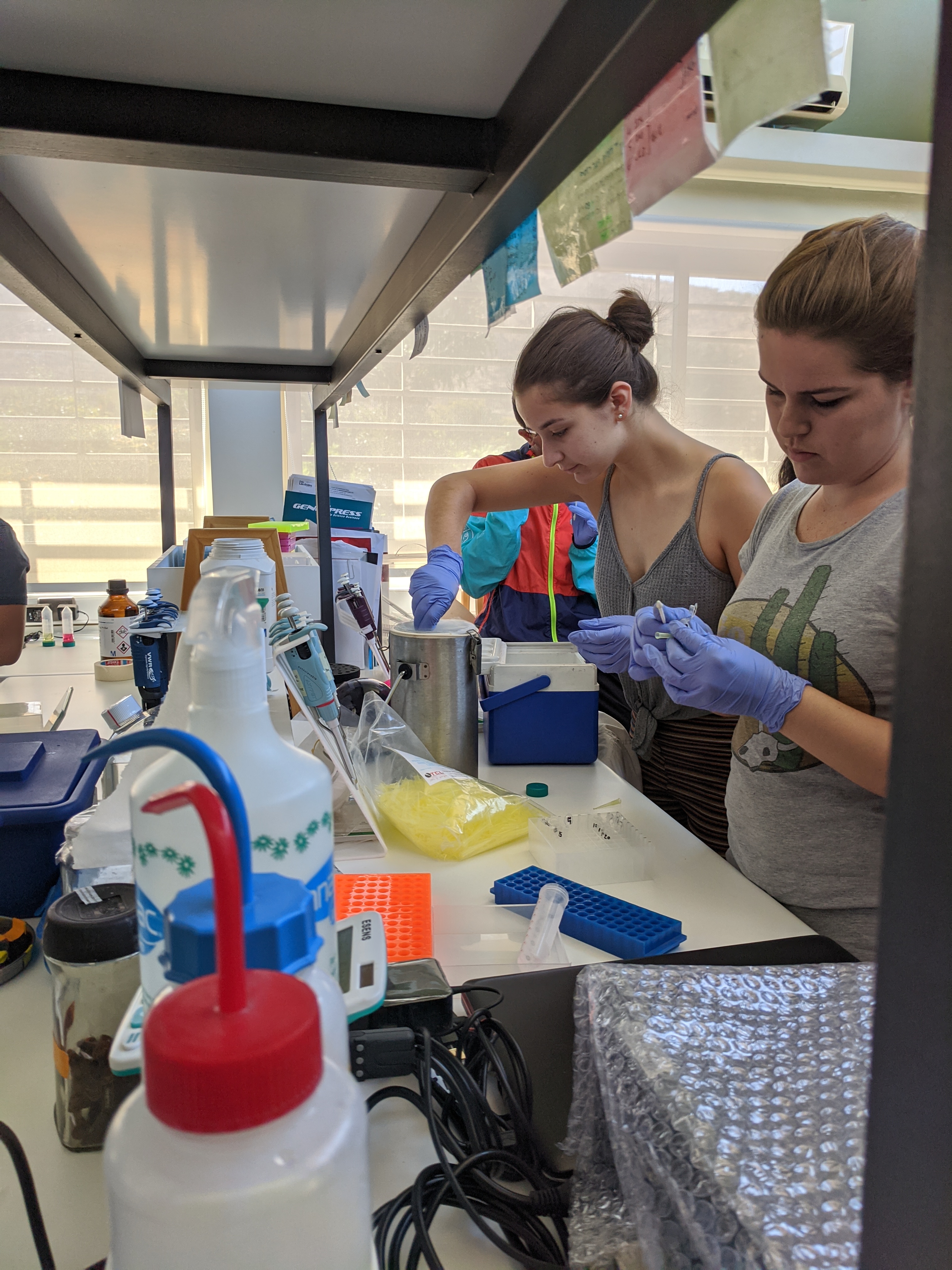
This past winter break, students spent an extended period in the Talca, the heart of the wine-growing Central Valley. Faculty, staff, and students from the University of Talca treated Cornell students to a five-day tour of the university and surrounding area, including local vineyards. Grapevine samples collected by the students from these vineyards were analyzed for disease in the field laboratory of Patricio Arce Johnson, professor biological sciences at the Pontificia Universidad Católica de Chile (PUC), in the country's capital Santiago. On returning to Cornell, students were shown how the techniques they had learned in the laboratory are being used to monitor the coronavirus pandemic.
"Globalization and the increased movement of people, plants, and animals across the planet bring new challenges in combating the spread of pathogens," says Thompson. "This course offers a theoretical and practical introduction to the main molecular diagnostic methods employed by researchers today for the control and monitoring of disease spread."
Using plants as a model organism in a lab at Cornell during the fall semester, the students applied multiple established and novel molecular techniques to determine the cause of disease manifested as a range of symptoms. Although the methodologies the students learn apply to both animal and plant health, the focus is on grapevine diseases in Chile's major wine-production region.
As part of their course work in Ithaca, the students visited both the Animal Health Diagnostic Lab at Cornell's College of Veterinary Medicine and the NYS Agricultural Experiment Station in Geneva, New York. They also received a visit from Gwendolyn Spizz from the local diagnostics company Rheonix who presented the students with insights into cutting-edge diagnostic methods.
During the fall semester on the Ithaca campus, the students began language study to be prepared to speak conversationally and technically with students, faculty, and collaborators in Chile.
I appreciated the unique research culture at the universities we visited. Their methods were very similar to those I have seen in the U.S. but were adapted to conditions and resources available in Chile, which was interesting to see. (Amrit Hingorani ‘20)
Jumpstart classes—taught by Kelly Moore, a Romance Studies graduate student and Foreign Languages Across the Curriculum/Chilean Spanish for Molecular Diagnostics classes—taught by Spanish instructor Danilo Moreta, PhD student, Agriculture and Life Sciences/plant breeding and genetics—helped to prepare the students for immersion in a Spanish-speaking culture.
The Cornell students then took their diagnostic and language skills and applied them during a two-week winter break trip to Chile. On the ground in Chile, they took samples from vineyards and analyzed them in a field laboratory. They conversed in Spanish and English with Chilean faculty, host students, and grape growers. Students credit the course both for improving their language skills and motivating their individual interests in science.
I enjoyed the lectures about current topics of research at PUC, as well as going to different facilities. Seeing where wine was processed, undergoing troubleshooting, and molecular diagnostics was a unique academic experience that would be hard to find elsewhere. (Ayesha Mohammed ‘22)
"For PUC, internationalization with Cornell is of immense interest both for the exchange of students and for the collaborative research between universities," said Johnson, the students' primary host, and Thompson's chief collaborator in Chile. "Grapevine is extremely important for Chile's economy, and the continued investigation into improving productivity is essential. This class gives students an insight into grapevine pathology, production, and general molecular biological techniques."
The Cornellians had the opportunity to meet PUC students and scientists, listen to presentations on their research, and tour the central campus. This year, there was an open forum on social unrest led by PUC students who earlier in the year had been directly involved in Chilean protests.
The opportunity to talk with the different producers and learn about the industry from different perspectives was the most exciting part of the trip for me. In addition to the experience in Chile, the tours throughout the course were equally gratifying. A favorite was the visit to the diagnostics lab at the vet school. Seeing people applying what we were learning in class has motivated me to pursue a number of different opportunities outside the course and beyond my time at Cornell. (Emma Cameron ‘22)
While in Talca, the students visited the Center for Research and Innovation (CRI) at the world-famous winery Concha y Toro. During a tour of the facility's molecular biology laboratory, enological chemical laboratory, and experimental wine cellar, the students asked questions of the CRI team, who explained the projects under development.
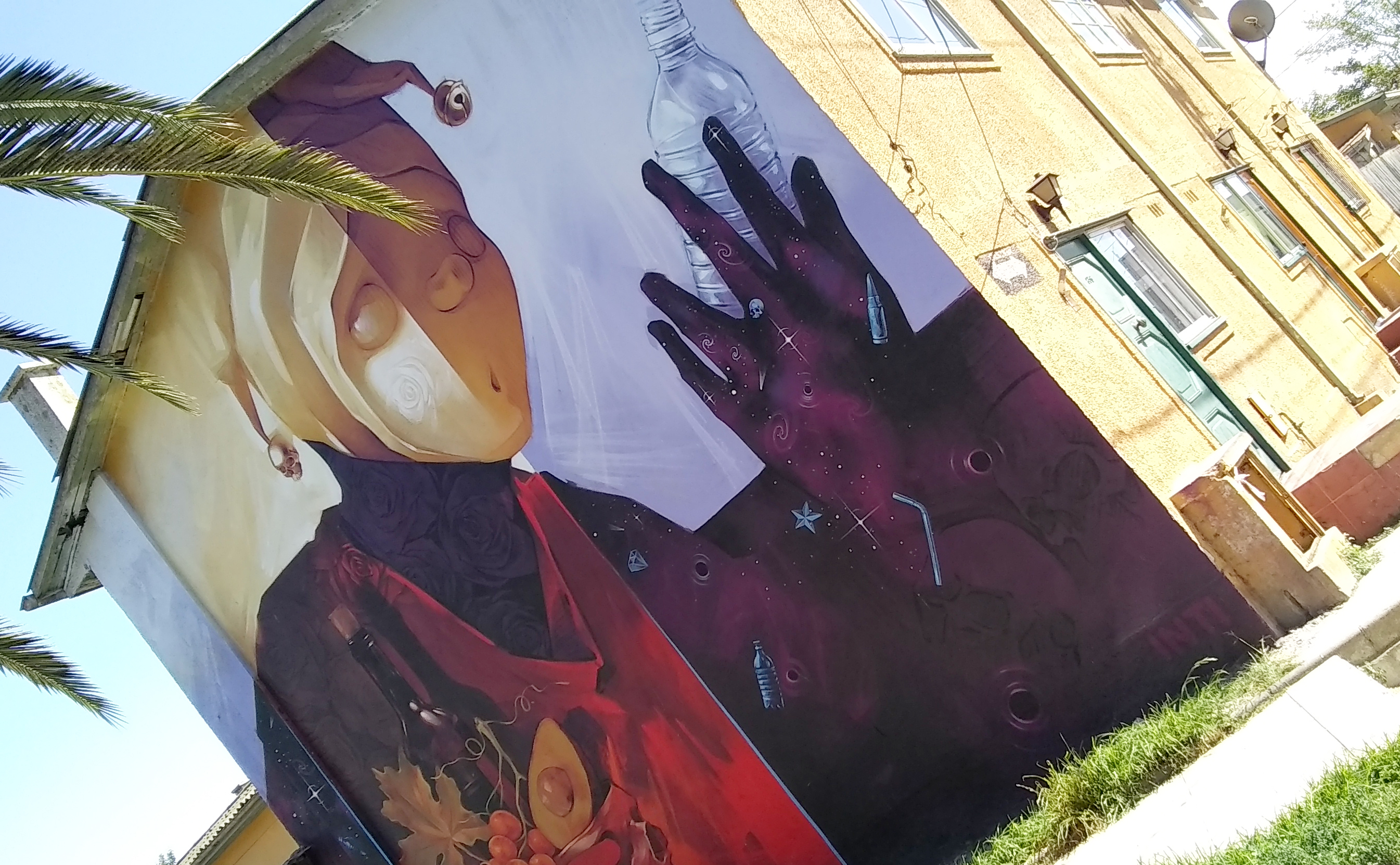
"The students got to see an excellently equipped laboratory that applies essential techniques for improvements in grapevine quality and production, all within the scope of a large international company," says Thompson. During the class visit, Thompson gave a seminar on the challenges of molecular diagnosis in vines to the CRI team, some of their collaborators, and industry stakeholders.
"All the students have a high interest and are very curious and active. They show a robust technical base for the aims of the course," says Felipe Gainza Cortés, a molecular biology researcher at CRI. "We think that experiences like this—in which mixing both the theoretical aspect and the possibility to learn how to innovate and use applied science in industry—have a high impact on the students' perspectives of their future as scientists."
I did not expect to have so many interactions with Chileans—students, professors, and citizens, which was probably the thing that made this course and trip more significant. I felt revitalized once I got back to campus and was really excited to learn more about biology so that I could fully understand presentations given on others' research. It made me more enthusiastic about biology when I heard Chileans discuss the research they have worked on, and I could understand it. (Maria Jimenez ‘21)
The students and faculty also visited several additional vineyards for tours and sampling: Hugo Casanova, Casa Patronales, Tabontinaja-Gillmore, all in the Maule region, and Casas del Bosque in the Casablanca Valley.
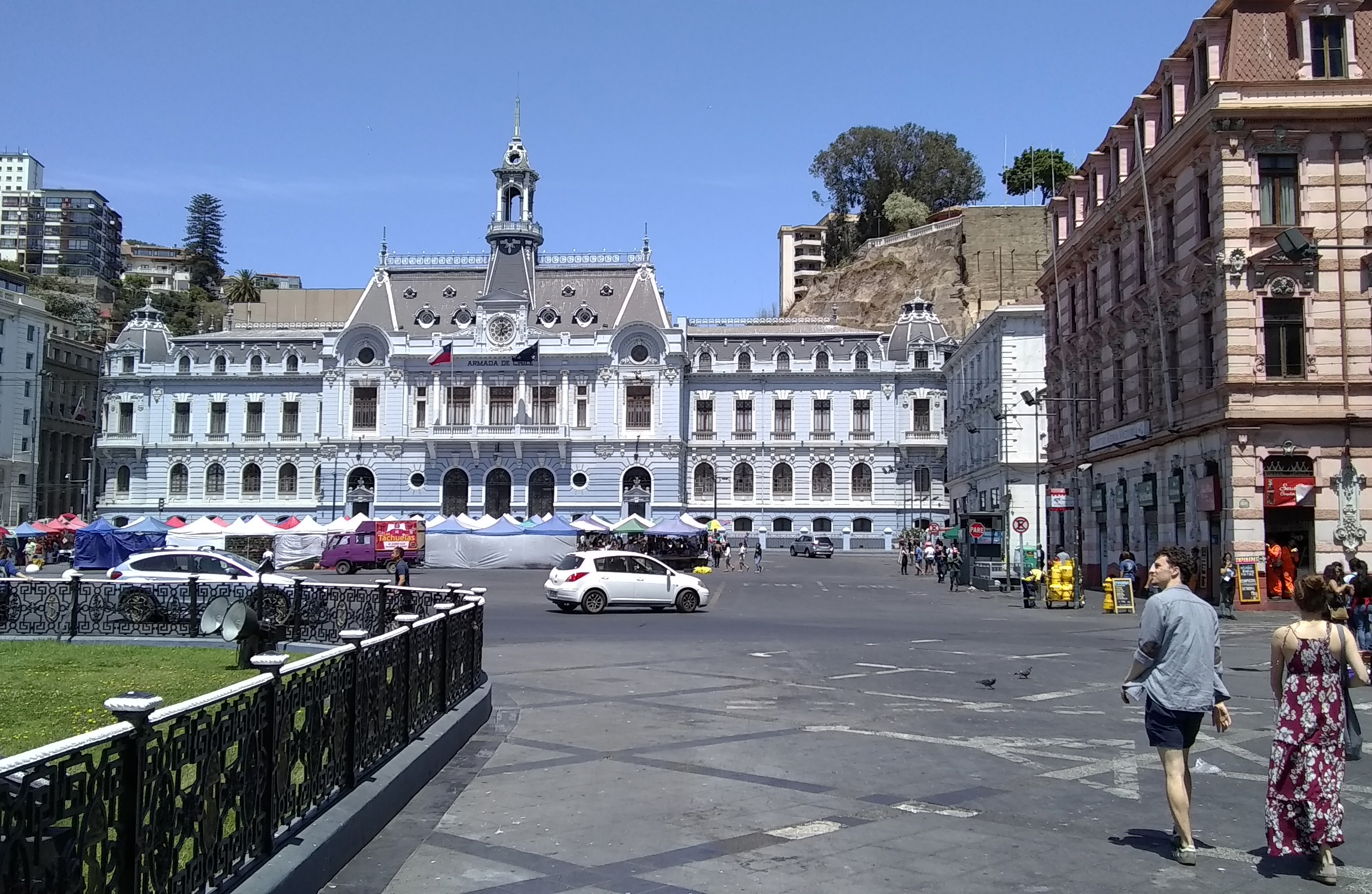
They took a walking tour to experience the charm of the coastal city of Valparaíso, where they viewed incredible street murals, followed by a ride on one of the city's seven funiculars down to the port area and the Monument to the Heroes of Iquique. They visited several museums, including the Museum of Memory and Human Rights in Santiago. And they spent a Saturday afternoon in the beach town of Reñaca, after having enjoyed lunch overlooking the Pacific coast.
On their return to winter in Ithaca, the students wrapped up their experience with a scientific report on their findings. Expansion plans for the course, says Thompson, are to provide a range of practical options for aspiring molecular biological researchers, including a five-day add-on field trip to sample the flora of Antarctica.
I learned so much about Latin American culture and politics that I didn't know before. There has been so much political turmoil in the region that I never knew about and all those events shape the way the country is today. It provided me with insight into why the region is the way it is now. I loved being in Santiago. There was so much green space and street art, and it was quite unlike any other city I'd ever visited before. (Rosemary Iwuala ‘21)
Funded by Mario Einaudi Center for International Studies Latin American Studies Program, Undergraduate International Studies and Foreign Language Program (U.S. Department of Education), Cornell Off-Campus Opportunity Fund, Engaged Cornell, and Cornell Office of Academic Diversity Initiatives.

